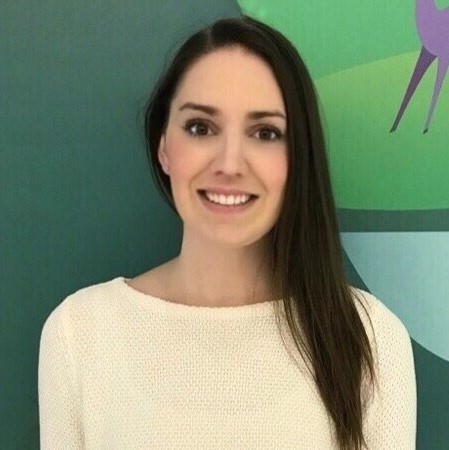Adult Care
You’re ready to manage diabetes on your own with the support of your adult healthcare providers.
Seattle Children’s Hospital (SCH) and the University of Washington Medicine Diabetes Institute (UWMDI) have collaborated to create a state-of-the-art program to support emerging adults with diabetes mellitus in their transition to adulthood.
The AHEAD Program features a multidisciplinary care team of medical providers (adult and pediatric diabetes providers), diabetes nurse educators, a psychologist, a dietitian, and a social worker. The primary focus of the team is to address the unique challenges that arise during emerging adulthood and prepare adolescents and young adults for a successful life of managing diabetes independently.
You and your pediatric diabetes provider will begin talking about joining the AHEAD Program.
Your team will include an endocrinologist, a dietician, a social worker, a diabetes educator, and a psychologist. We will spend time during visits without your parent in the room to help you set goals and learn how to take charge of your own health care.

We recommend transferring your care to an adult diabetes provider either in the AHEAD Program at UWMDI or to another adult endocrinologist after turning 18 years old but no later than 21.
You’re ready to manage diabetes on your own with the support of your adult healthcare providers.
What is a Supported Transition and Why is it Important?
A health care transition is the planned and purposeful movement of young adults from child-centered to adult-oriented care systems. A successful transition from pediatric to adult care for youth with diabetes supports them in establishing lifelong healthy behaviors. There are significant differences in the patient experience between pediatric and adult health care. Pediatric care is typically holistic and family focused with longer visits that frequently incorporate resources from on-site social work and psychology. In contrast, visits in adult care are often shorter and more medically-focused with fewer resources available to immediately address any psychological or financial needs. Lack of transition support can lead to less engagement in diabetes management, worsening of psychological challenges, and loss of medical follow up putting youth at risk for developing both short-term and long-term complications from diabetes.
Adolescents and young adults face many unique challenges when transitioning to adult care. Our clinic is staffed by trained specialists to help navigate the process.
Living alone
Going to College
Employment
Relationships
Drugs and Alcohol
Driving
Understanding Health Insurance
How Our Program Works
Emerging adults can enter the AHEAD Program at either Seattle Children’s Hospital (SCH) or UW Diabetes Institute (UWMDI):
Once you are receiving care within the AHEAD Program, we will support you to successfully transition to an adult diabetes provider after our AHEAD team feels you are ready to graduate.


Diabetes Program Coordinator

Psychologist

Social Work

Nurse and Diabetes Educator at UWMDI

Dietician

Nurse and Diabetes Educator at Seattle Children's

Nurse and Diabetes Educator at Seattle Children's

Nurse and Diabetes Educator at UWMDI
750 Republican Street Floor 3, Building F Seattle, WA 98109 (Between Dexter and Republican)
Parking: Paid Parking in Garage under building (No Cash)
Phone: 206-598-4882 Fax: 206-598-8664
4575 Sand Point Way NE Seattle, WA 98105 (Across from Main Hospital)
Parking: Free in Parking Lot
Phone: 206-987-2640 Fax: 206-985-3373
34920 Enchanted Pkwy. S Federal Way, WA 98003
Parking: Free in Parking Lot
Phone: 206-987-2640 Fax: 206-985-3373